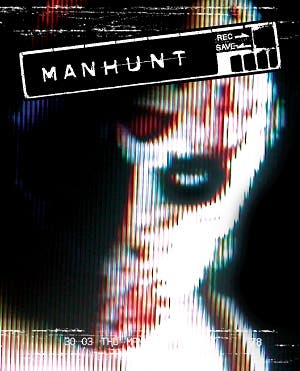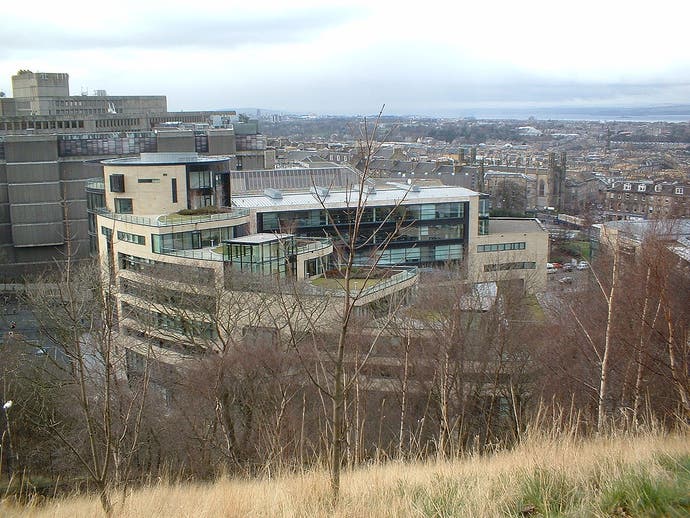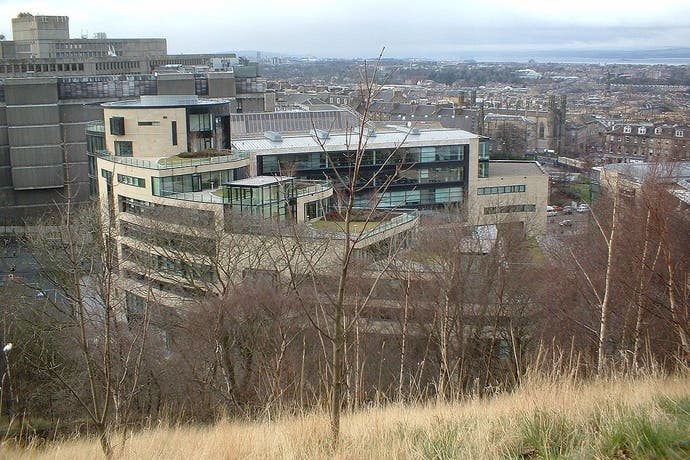"The reality is we're not really interesting"
As GTA 5 launches on PS4 and Xbox One, we talk with two former veteran Rockstar North developers about their time at the secretive super studio.
We don't often hear from the people who work at Rockstar. Co-founders Sam and Dan Houser aside, the cryptic company behind the gargantuan Grand Theft Auto series presents a united front. When Rockstar speaks it is from one voice.
So when the chance came up to chat with a couple of people who used to work at Rockstar's flagship studio, the fabled Rockstar North, I grabbed it with both hands. And they aren't any old former Rockstar North developers, either: one worked there for over a decade, the other for nearly 20 years.

Will Morton worked at Rockstar North for 12 years as a dialogue supervisor and senior audio designer. He started not long after Grand Theft Auto 3 came out in October 2001 for the PlayStation 2. Back then, Rockstar North was known as DMA Design, the Dundee-based creator of the GTA and Lemmings franchises.
Morton worshipped DMA's early GTA games, so scoring an interview at the place where they were built blew his mind. Then, he got the job. But when he turned up for work there was something different about the place: DMA Design had become Rockstar North.
"I signed a contract with DMA, which was one of my heroes from the late 80s and 90s when I was growing up," he says. "I get a job at my dream place and then it all gets rebranded to Rockstar. It felt like a fresh start."
Morton was put to work on Vice City, which launched a year later after a blistering nine month production. "It felt like for the first time I wasn't going to be able to play a GTA game without knowing it from the inside out already," he says. That's something you hear a lot from developers who end up working on game franchises they love. They miss being a punter, experiencing games when they're finished - not as they're built.
After Vice City launched and sold spectacularly well, Morton worked on Manhunt. Then came San Andreas. By the end of the PS2 era he was involved in every game Rockstar was putting out.
Scot Craig Conner was the music director at Rockstar North. He scored nearly 20 years at the company, composing the soundtrack for the original Grand Theft Auto in 1997. Conner remembers with fondness when Rockstar took over DMA. For someone who had spent so long fantasising about securing licensed tracks for GTA games, having Sam Houser, who had come from Bertelsmann Music Group with a contacts book bursting with big names from the music industry, leading the charge was a dream come true.
"I was in awe of this guy," he says. "We'd been faking it with GTA 1 and GTA 2, making up all these mock radio stations. When Sam came on board I was like, yes! We've actually got access to proper music so we can start licensing things.
"That's exactly what he did."
When it came to in-game music, the Housers had an immediate impact. For GTA 3, half the music was written in-house, the other half made up of licensed tunes designed to fit in with the story. Vice City, though, stepped it up. In-car radio stations blasted out a huge collection of iconic 80s tracks from the likes of Judas Priest, Blondie, Kate Bush, Iron Maiden, Mötley Crüe, Ozzy Osbourne, INXS, and even Michael Jackson.
"We were making up all these unheard of fictional artists, and then the next thing we knew we were on Vice City with Michael Jackson," Conner remembers. "And then we were like, oh yeah, let's shove in a couple of our own made-up fictional bands. And then we were like, no. Let's not. The rest is history."
Conner credits Terry Donovan, who co-founded Rockstar Games alongside the Houser brothers, with securing much of the licensed music for Vice City. Donovan, Sam Houser's old school friend, had once been head of A&R at Arista Records, a division of BMG.
Donovan, Conner remembers, tapped up US music executive Tommy Mottola, who at the time headed up Sony Music Entertainment. Mottola gave Rockstar permission to flick through Sony's extensive catalogue and pick out what they wanted. Having Sony on board for the music was a big deal for GTA. Conner felt like a kid in the most mouthwatering candy store in town.
Quickly, the roles reversed. For Vice City Rockstar went to the record industry asking for favours. Nowadays it's the record industry that goes to Rockstar hoping to get its acts on the biggest soundtrack in all of video games. "Everybody was just winging it back in the day, you know?" Conner says. "And to see what it's actually come up to now is quite amazing."
When Will Morton started at Rockstar North he was given the job of working on dialogue. It was decided that someone should be responsible for the noises that comes out of the mouths of characters in Rockstar games since, well, that seemed to be important in the post-GTA 3 world.
After Vice City came ultra violent psychological stealth horror Manhunt, which Eurogamer's Christian Donlan maintains is the best game Rockstar North has ever made. It was clear to the developers that Manhunt would have a lot of "talk" in it. "You need to know where people are," Morton says, "and you can't rely on whistling and footsteps for everything."

Rockstar's games were changing. They were getting bigger and narrative was becoming more important. "It became apparent that with the way Sam and Dan Houser wanted to push the games and go more cinematic and on a grander scale," Morton says, "that the dialogue was going to be a big thing."
Still, Rockstar had yet to grow into the 350 person gorilla it is today. Roles bled into each other and everybody did a bit of everything, helping out here and there. For Morton, it was a combination of handling the dialogue and doing sound design. He did a lot of the sound effects for Manhunt, and, beyond that, sound effects for San Andreas, GTA 4 and others.
"Dialogue is something Dan [Houser] in particular is always wanting to push to make sure it's at the forefront of what everybody is doing," Morton says. "While a movie is predictable and entirely linear, we need to make concessions to make sure dialogue doesn't get boring or repetitive, so every experience can be different for every player."
After GTA 4 came out in 2008, Rockstar's developers realised they were using dialogue to a greater extent than other studios. The jump to GTA 5 would be enormous: GTA 4 had 80,000 lines of dialogue. GTA 5, which launched on the same hardware, had just under 160,000 lines of dialogue.
If GTA has a screenplay, Dan Houser writes it. "He's like a machine," Conner says. "He's a powerhouse machine." But there are other writers at the company who contribute. All those pedestrians aren't going to write themselves, after all.
The writers would work with Morton, talking to each other almost every day, to help convert the story and dialogue into missions that fit into GTA's open world. Dan Houser is hands-on here. Sam Houser, it seems, is more of a big picture person.
"I'm thinking back to a discussion we'd had with Sam just after GTA San Andreas came out," Morton remembers, "and he was talking about his plans for the future of GTA. Sam is very much, 'let's think big, let's aim high, and let's make the best we can.'
"There's no point approaching a project if you don't have ambition. And Sam oozes that. I even remember things he was saying after San Andreas, things he wanted to do in future GTAs. And even after GTA 5 there were still things back from 2004. Sam really does think into the future for sure."
"He's like, 'yeah, well, what's next?'" Conner says. "'What's next?'"

Both Morton and Conner had worked through GTA's transition from the PS2 to the PS3, witnessing the more cartoony, over-the-top GTA experience evolve into something more realistic and grounded. That transition also involved a move to high definition visuals and audio. With people playing games on huge HD TVs, detail had to be increased. A lot.
Moving from GTA 4 to GTA 5, Rockstar North wanted a story that would feel more mature. Not in terms of the violence, Morton insists (GTA has always been supremely violent), but in terms of feeling and tone. He flew to LA for recording sessions with hundreds of actors. Directors from Rockstar would have the "talent" in the booths, holding the scripts Rockstar North had produced.
"Given the fact GTA 5 was so big, it would be difficult for somebody who hasn't had a history in games of that size to just jump in and make something that big," Morton says.
"Me overseeing the dialogue for so many past GTAs, I had a better chance than most of making GTA 5's dialogue a success. I'm really pleased that came off. It's a genuine highlight of my career to have been involved in that."
Authenticity was a big part of GTA 5's design. So, for the video game gang members, voice actors who were previously real life gang members were hired. "They had turned their lives around and become actors," Morton says, "which in LA does happen.
"They'd look at the script and sometimes say, 'I wouldn't say that.' And we'd give them the freedom to make it their own."
One of GTA's more controversial - and long-standing - elements is the ability to pay for sex with prostitutes. It's been a staple of the series for years, so much so that the shock value has kind of worn off at this point.
For Craig and Will, though, it never got any easier to record a prostitute's dialogue. "There are a lot of people in the control room," Conner says. "There's the actress, being very professional, she's doing her lines and everything, and then, like, 'yeah, could you just give us a...'"
"We need something to sound very slurpy," Morton interjects.
"And now if you could just imagine you're getting - I'm thinking of a nice word to say - you're having sex with your client," Conner says. "It just goes from bad to worse. And it's so embarrassing."
Conner and Morton remember a time, in the early days of the series, when the developers would get their mates to help record dialogue like this. "When you're recording with people you know, you have a bit of banter," Morton says. "But when we're working on games like Vice City and San Andreas, and we're using professional actresses, you don't know quite where you can tread with that."

"With some of the actors, it's far better to parrot a line to them," Conner explains. "You shout how you want it delivered. Rather than just give them the description, you just say, 'SHOUT IT LIKE THIS! SOMEBODY'S KILLING YOU!' You do that.
"With the prostitute stuff it was like, 'could you just go like, ah! Oh!'"
"Quite often the person who is doing the acting won't have been familiar with the game beforehand," Morton explains. "So we had to try and explain a lot very quickly. So sometimes it's best to just put your dignity aside and act it out."
GTA 5 was the first in the series to feature a system that allowed you to switch between multiple characters at any time. And it was the first GTA to feature an interactive score, written and composed by German electronic music group Tangerine Dream ("Some of it's quite sinister sounding, which I knew would work with some of the missions that were planned for GTA 5," Conner says), alongside the radio stations fans of the series had come to expect. This was a big challenge for the audio team at Rockstar North.
Having come off of Max Payne 3, Conner set to work on this interactive score. The idea was to mix the music in such a way that the radio stations sounded processed and rich, and the score was played down, with a more stereo sound. This, Conner hoped, would mean players would hear a definition between the score and the radio - even at a subconscious level.
"Missions, with the players coming in and out of cars, it was such a challenge to try and make that happen smoothly so the players wouldn't really notice the transitions much, which I think we got away with," he says. "I mean, there are a few situations where you might notice a less than subtle change, shall we say. But generally speaking, we managed to iron it out and make it all a bit smoother."
"It's one of those technical processes you hope people don't ever realise is happening," Morton adds.
"When you've got a world as rich as GTA, you have people on the street talking, you have the sound of cars, the sound of the ambience, then you've got not only music from the radio, which we've traditionally done, but we have the addition of the score, which obviously is very action driven and follows what the player is doing. It's a lot for the brain to process, so we had to go through a lot of technical decisions about how best to allow each component its own space to breath."
"At the start, I didn't know if we could actually pull it off," Conner says, "because I was so worried about how it would gel. It is a miracle we actually managed to pull it off."
What do we know about Rockstar North? We know it's in Edinburgh and there are around 350 people working there. But beyond that, not much. Conner and Morton describe a place where only the most dedicated come to work. Building GTA is tough, they say, but then nobody said it was easy. The impression I get is they knew the score. And when a game was released, they were each proud of their work.
"Nobody's precious about their work on this," Morton says. "We're all working on the same project and we all want the project to be the centre of it. There's no ego involved."
"If something's shit then somebody is going to say it's shit, and then it's cut," Conner says, bluntly.
Conner has witnessed DMA and then Rockstar North grow alongside the popularity of the GTA series. The team behind GTA 3 was about 60 people. GTA 1, he remembers, was about 20 people. When Rockstar bought the studio things changed. "New York had got them," Conner says.
"A job one person could have done on a Friday afternoon back in the day, now you have a team of 20 or 30 people doing it full-time. There's still a team, but it's just bigger. There are more people to deal with, there are more areas to deal with. But the energy is still there, you know? The meetings and stuff we have, I guess it's just a bigger company."
Each jump in console generation resulted in an equivalent jump in manpower, Morton says. "It's not just a case of learning how to use a new piece of hardware," he says. "It's also a case of graphics getting higher resolution, audio content getting higher resolution, and more of everything. The growth of manpower needed, it's just exponentially growing."
"It got to the point where you're never going to remember everybody's name," Conner laments.
Morton describes a competitive culture in which departments try to one up each other. "I remember seeing the water in GTA 5 when the ocean water effects were first put in place," he says.
"That blew me away when I first saw that."
"When you see shit like that you're like, fuck, I need to up my game," Conner says. "It's the same when we saw the main characters. That was quite good."
Rockstar North tends not to do press. We don't see or hear much of president Leslie Benzies or other higher ups. This saddens me. What a fascinating place Rockstar North must be, I imagine. Hundreds of people taking years to make the biggest video game on earth. "We're not allowed to talk!" Conner laughs.
A shame, I think. But then Conner seems happy with the silence, and he suggests we should be, too. "We're not celebrities. We're not really interesting people, to be honest. That's the truth. We're all good at what we do, and we can do great games and stuff, but as people we're kinda just normal. We eat fish and chips, you know what I mean? The interesting stuff in our lives goes into the game."
Can it be? Mike Diskett worked at Rockstar North from 2006 to 2008, starting as lead programmer on Agent (what ever happened to that?) before it was put on hold so staff could concentrate on GTA 4. During an interview we did about his new game, the Syndicate spiritual successor Satellite Reign, Diskett echoed his former colleagues' comments.
"It's actually quite boring," he says of his time there. "I went there expecting - I don't know why I expected it - but somehow you expect there to be the prima donnas and rockstars of the game industry and a gangster vibe or something. But it's like any other game studio. There are 100 nerds sat in a large room quietly typing at a computer. You could literally hear a pin drop in the offices, it was so quiet. It was very quiet, and everyone just quietly got on with their work."

"The reality is we're not really interesting," Conner continues. "We're living out all our fantasies and all the stuff we aspire to be in the games and in Trevor Phillips and shit. You know what I mean?"
"I'm not sure I aspire to be Trevor Phillips to be honest!" counters Morton.
"Personally for me, it wasn't anything that shocked or disgusted me, but the cut-scene during the part of the story where he's outside his trailer and Wade's there, he punches Wade and then pulls him back up and then just punches him straight down again, that was just a big indicator of, right, I know exactly what sort of character we're dealing with here."
"The torture scenes as well, some people were a bit like, er..." Conner says, "but I was like, what? You've got to push boundaries. There isn't any point in doing it if you're not going to."
"I don't think the torture thing was done deliberately to... It wasn't done to shock.".
"Well they did!" Morton says.
"Trevor was great. Somebody has said Trevor is the character who represents how most GTA players play the game anyway. So it's good there's the Michael character and then there's the Franklin character and then there's the Trevor character, because there's something there for everybody."
There's this feeling that Rockstar North knows what it's doing at this point when it comes to GTA. It's had plenty of practice building its huge, highly detailed sandboxes, with a veteran core team that has, by and large, stayed the same throughout. I'd say it's a well-oiled machine, as far as 350 people building a video game can be.
"Everybody knows what GTA is and everybody knows what they have to do to make GTA," Morton says. "The old-timers like me and Craig and the other guys who have been there for more than one game, everybody's very slick."
Just as GTA 5 launched in September 2013 and Rockstar North began thinking about DLC and the support of GTA Online, Conner left the company. "I was approaching 20 years," he says with a sigh.
"It just felt like that was the right time to go out on a bang and a high five. I wanted a bit of time out. I never just did all the GTAs. In between I stopped off at Red Dead Redemption, LA Noire, Max Payne, Manhunt and Manhunt 2. I feel like the last 20 years of my life has just been two years ago. I felt I needed to take a little bit of time to recharge, catch my breath I guess, and then explore pastures new."
Morton, who had just had a baby, wanted to "take a breather". "I came back after the New Year break and handed my notice in then. A change is as good as a rest, because I fell into some film work almost immediately. It was nice to do something different."
Both admit it was an emotional wrench to leave not just the work but their friends, although they still keep in touch. "I think basically we're having a midlife crisis!" Conner laughs.
Solid Audioworks is their joint venture. The idea is the pair will bring the best possible audio production to a video game. And with the GTA series on their CVs I'm sure they've already had plenty of offers.
But what's the dream project? As a fan of Naughty Dog's The Last of Us, Craig Conner wants to do "a big horror". "Just something sinister. That's my ambition."
Will Morton has a loftier ambition: "I would love to work on bringing Shenmue back to life," he says. "I'm genuinely a big fan of Shenmue 1 on the Dreamcast and Shenmue 2 on the Xbox. I would love be able to help re-envisage that for the next gen."
Last week the PlayStation 4 and Xbox One versions of GTA 5 come out. It was the first GTA game to feel fresh - or at least as fresh as a next-gen remaster can feel - for the pair in years.

